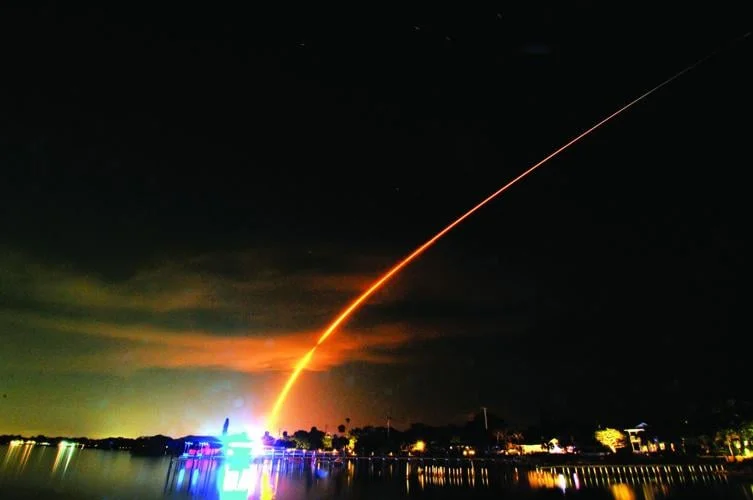
Amazon’s Project Kuiper Takes on Starlink: A New Space Race Begins
The skies above are becoming increasingly crowded, not with planes, but with satellites. Amazon's Project Kuiper, a $10 billion venture, is officially underway, marking a significant challenge to SpaceX's Starlink in the race to provide global broadband internet. But is Kuiper ready to compete, and what does this mean for consumers?

On April 28, United Launch Alliance (ULA) launched the first 27 Kuiper satellites into space aboard an Atlas V rocket from Cape Canaveral Space Force Station, Florida. This marked the beginning of a full-scale deployment of Amazon's low Earth orbit (LEO) satellite network. "Our team in mission control established contact with all 27 satellites within 90 minutes of launch," Amazon reported, signaling a successful start to the mission.
These initial launches represent a critical step for Project Kuiper, which aims to bring broadband internet access to tens of millions of people, particularly in underserved areas. Amazon plans to launch over 3,200 satellites to achieve this goal. The company emphasizes that Kuiper's services will bridge the digital divide, delivering faster connections to rural communities.
Project Kuiper consists of three main elements: ground infrastructure, the satellites themselves, and customer terminals (antennas). Ground infrastructure connects the satellite network to the internet, while the satellites transmit data between the ground and users. Users then install an outdoor antenna to connect to the satellite and receive WiFi. Kuiper will also integrate with Amazon Web Services (AWS), potentially giving Amazon complete control over the infrastructure and pricing.

However, Kuiper faces a significant challenge in catching up to Starlink. Starlink already boasts thousands of operational satellites and millions of users worldwide. Some opinions suggest that Kuiper may struggle to compete, pointing to Starlink's established track record and Elon Musk's success in scaling space technology.
Despite the challenges, Amazon has secured over 80 launches with companies like ULA, Blue Origin, SpaceX, and Arianespace. The Federal Communications Commission (FCC) requires Amazon to deploy at least half of its satellites by the end of July 2026. Amazon anticipates making Kuiper internet accessible to customers before the end of 2025, if everything goes according to plan.
The rivalry between Jeff Bezos and Elon Musk is intensifying in space. While Musk's Starlink has a considerable head start, Bezos is determined to catch up. The battle will continue to evolve with the introduction of new technologies and worldwide relevance. While the first deployment of Amazon's satellites on April 28th was a large step for the Kuiper project, some investors fear it will be "money lost in space".
Will Project Kuiper successfully challenge Starlink's dominance, or will it become another expensive venture for Amazon? The answer remains to be seen, but the unfolding space race promises to deliver innovation and improved internet access to people around the globe.
What are your thoughts on Project Kuiper and its potential impact? Share your opinions in the comments below!